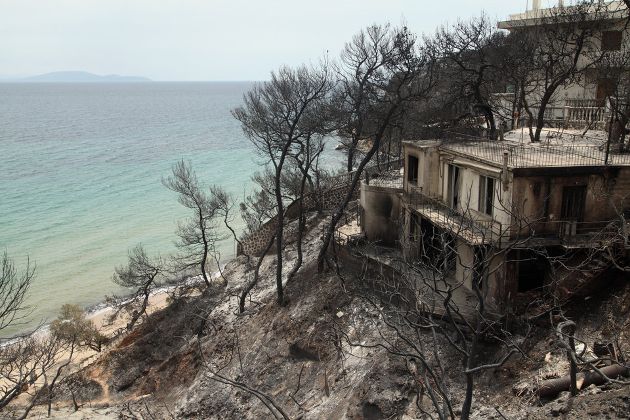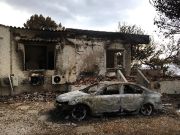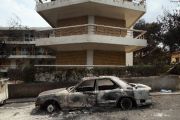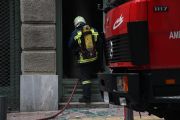-
 EBRD reports highlights demographic headwinds Greece has to navigate
EBRD reports highlights demographic headwinds Greece has to navigate
-
 OECD report highlights stark contrasts in health system
OECD report highlights stark contrasts in health system
-
 Greece’s 14–29s: Ambitious, anxious and lacking trust
Greece’s 14–29s: Ambitious, anxious and lacking trust
-
![Photo by Myrto Papadopoulos [www.myrtopapadopoulos.com] Photo by Myrto Papadopoulos [www.myrtopapadopoulos.com]](resources/toolip/img-thumb/2013/11/05/younggreeks_1000_myrto_0411-small.jpg) Survey charting young voters presents diverse fractures and politics
Survey charting young voters presents diverse fractures and politics
-
![Photo by Can Esenbel [http://www.mundanepleasure.com/] Photo by Can Esenbel [http://www.mundanepleasure.com/]](resources/toolip/img-thumb/2014/02/12/peopleblur_agora_esenbel-small.jpg) Survey attempts to map current contours of progressivism in Greece
Survey attempts to map current contours of progressivism in Greece
-
 Greeks crying out for political change but doubt it will happen, poll finds
Greeks crying out for political change but doubt it will happen, poll finds
Expert report highlights systemic failings in aftermath of deadly Mati wildfire

A report commissioned by the government into the causes of wildfires in Greece has identified a number of systemic failings behind the increase in the scale and frequency of destructive events, culminating in last summer’s fire at Mati, the deadliest on record.
The report was commissioned by Prime Minister Alexis Tsipras in the aftermath of the Mati wildfire which resulted in 100 deaths in a seaside community close to Athens on July 23-24, 2018. Following the fire, the heads of the police and the fire service, the head of the Civil Protection and the Alternate Citizens’ Protection Minister were removed from their posts, and there were widespread calls for an investigation.
The independent committee was chaired by Professor Johann Goldammer of the Max Planck Institute, and convened under the auspices of the Global Fire Management Center, a research institution coordinating fire management policy on behalf of the United Nations, the Council of Europe and other international bodies. Its remit was to identify the underlying causes of wildfires in Greece, examine the existing fire management framework and put forward specific recommendations for preventing similar events in the future.
The report highlights a number of peculiarities affecting wildfire risk in Greece, most of which can be traced to failings in the design and implementation of policy around wildfire management. The report notes that there has been increased incidence of wildfires since the 1980s despite the improvement in firefighting capabilities, and that large-scale wildfires are becoming both more frequent and more destructive (4 percent of incidents account for 75 percent of destruction). Due to the effects of climate change, and particularly increased drought, fire risk is expected to increase significantly, further worsening these trends.
Failings
Socio-economic and demographic factors are an important backdrop to the present situation. In recent decades, urban development and other human activities such as tourism have encroached on forested areas, increasing the risk of fire and the likelihood of property damage and loss of life. At the same time, the countryside is becoming abandoned, and with it activities such as farming, herding and logging which once helped manage and protect forested areas and the surrounding landscape.
On the fire management front, the report argues that efforts are doomed by the absence of strategic planning and local fire plans, and the absence of reliable fire risk indicators and early warning systems. In practice this means that there are no evacuation plans, no designated escape routes from high-risk areas, no shelters or first aid stations, and no systematic plan for managing the humanitarian needs in the aftermath of a catastrophic fire. There is instead a proliferation of bodies and agencies involved in different aspects of fire-fighting and prevention without rules of engagement or central coordination.
Equipment and responsibilities are divided among a “complex and chaotic landscape” of services and agencies with no clear chain of command or coordinating mechanism, the result of consecutive restructuring initiatives, often left incomplete. The report counts 45 agencies involved in fire protection, and 17 agencies spread among six government ministries involved in fire-fighting. The early warning system which was intended to form part of the Europe-wide “112” emergency number was legislated in 2014 but has not been implemented, while tens of millions of euros’ worth of technology funded in the wake of the deadly 2007 wildfires produced a patchwork of incompatible systems that has never been put into use.
The report also criticises “systematic” political interventions in appointing the leadership of the various bodies and assigning their responsibilities. The landmark decision taken in 1998 to shift the responsibility for fighting wildfires from the forestry service to the fire service is singled out in this respect, with the report noting that it was not supported by any evidence as to its usefulness or feasibility, and was imposed without any preparation. Two decades on, fire-fighters lack the training and know-how for combating fires in forested areas.
Damningly, the report notes that Greece is unique in Europe in spending the lion’s share of funds on fire-fighting rather than on fire prevention. Prevention work is described as having been “effectively inactive” for decades, with “provocatively low” annual funding in the region of 20,000-30,000 euros per 500 square kilometres, often arriving too late in the season to be put to use. Public awareness campaigns, a tool both for wildfire prevention and public health and safety during a fire emergency, is also described as piecemeal and lacking the necessary urgency and impact.
Greece is also alone in not having a completed national land register or forest register, creating ample incentive for surreptitious changes in land use through arson. These institutional gaps are made worse by a tolerance for unregulated and unplanned construction.
Recommendations
The report challenges the automatic assumption that an increase in funding would improve Greece’s firefighting capabilities, noting that the doubling of funds over recent decades coincided with an increase in the destructiveness of wildfires. It calls instead for a more balanced distribution of available funds among the various functions, and an integrated national plan for prevention and suppression of wildfires overseen by a dedicated agency.
Among the report’s detailed recommendations are: strengthening the role and capabilities of the forestry service as the body charged with fire prevention; creating a well-trained seasonal fire-fighting force; better training, support and integration of volunteer fire-fighters; more use of land-based fire-fighting in preference to the more expensive and often less effective airborne means; more use of state-of-the-art technology in all stages of prevention and suppression of fires.
Above all, the report calls for a comprehensive overhaul of the way the country approaches the perennial national disaster that is the wildfire season. It argues for an evidence-based approach coordinated at the national level, and embracing the full spectrum of prevention and suppression in an integrated and coherent way.
Criticism
When the report was delivered to the Greek parliament last week, responses in the press were divided between those who interpreted it as a criticism of the present government, and those who called it a whitewash for failing to apportion responsibility for last year’s fire deaths. Both perspectives are missing the point. Prime Minister Alexis Tsipras was no doubt politically deft in assigning the committee a broad remit rather limiting it to the Mati wildfire. This means that those affected by the fire and the country as a whole will have to await the outcome of an ongoing judicial inquiry and a number of private lawsuits filed by victims’ families to see justice done.
Following the 2007 wildfires in which 78 people died, local and regional officials received prison sentences for their failure to implement prevention measures that could have saved lives. However, it took nearly a decade for their convictions to be upheld by the appeals court.
Opposition parties, for their part, have been dogged in pushing for an investigation into the proximate causes of this most recent disaster. New Democracy went so far as to commission its own expert report into the handling of the Mati fire, which criticised the slow response and the lack of an evacuation effort. There has been less willingness to engage in the deeper issues behind the headlines.
The Goldammer report’s conclusions are bold and, though not limited to the present government, the political responsibilities are clearly spelled out. It is a shame that it took a tragedy of such proportions to prompt even the most basic acknowledgement of dysfunction. The responsibility is no less onerous on the government to act on the report’s recommendations. Which government that is remains to be seen – in an election year it is always hard to keep sight of the “burning” issues.
 Is a lack of spending hampering Greece's firefighting capabilities?
Is a lack of spending hampering Greece's firefighting capabilities?  Tsipras tries to take lead in fire response amid picture of confusion
Tsipras tries to take lead in fire response amid picture of confusion  PWC report finds Greek fire damage above average despite lower incidence
PWC report finds Greek fire damage above average despite lower incidence